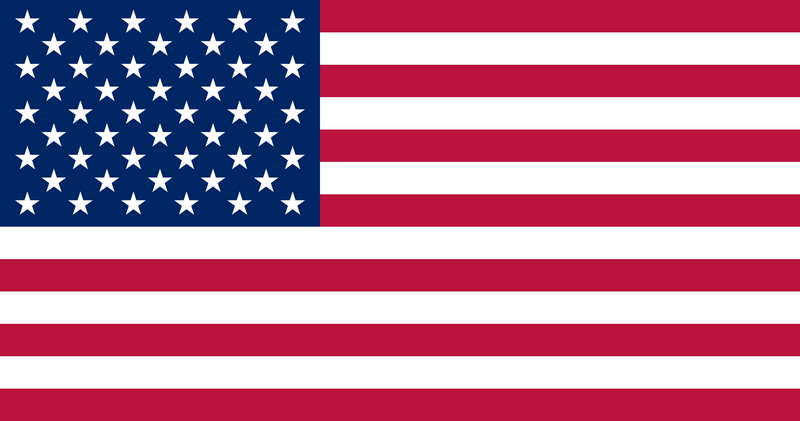Which water filtration system is right for you?

Do I Need a Water Filter?
There are very few places where you can safely drink unfiltered tap water, anymore.
Between extreme weather events, new chemicals, and negligent oversight, it is becoming increasingly difficult to have faith in tap water.
There are some places where it’s always been a good idea to avoid the tap water. For example, in most of Africa, South America, and Central America, there is a greater risk of water-borne diseases due to bacteria in the water, according to guidelines from the CDC. While there may be some locals who are able to drink the water due to a slowly acquired tolerance, it is generally considered unsafe for those who are not accustomed to it.
There are also places, such as Dubai, where no one drinks the tap water largely due to its flavor. Tap water in Dubai mainly comes from groundwater and desalinated seawater from the Arabian Gulf. Because of the dry climate, there is a negligible amount of surface water. While the processed tap water is considered “safe for drinking,” almost everyone in Dubai drinks from bottled water because of the tap water’s unappealing flavor and aftertaste. There are plans to use recycled wastewater in the future in order to meet Dubai’s growing water demand, which will likely lead to even less confidence in the tap water.
Extreme weather conditions lead to once-safe drinking water becoming contaminated, an issue that is becoming more of a concern as the climate crisis makes extreme weather events more common. From Kentucky to Pakistan, floods have not only caused death, injury, and loss of property, but also water emergencies.
Even countries that are generally thought of as having “safe” drinking water are contending with contamination problems. At the time of publishing this article, Baltimore is experiencing an E. coli outbreak, with very little information known about the source of the contamination. Jackson, the capital of Mississippi, is dealing with a water crisis with no end in sight, caused by a combination of poor infrastructure, negligence, and flooding. Even Western Europe, the source of many of the leading mineral water brands in the world, is experiencing harmful substances in drinking water. A 2019 study that looked at forever chemicals found in tap water in the Netherlands, Sweden, and the United States, notes that, “Around the globe, communities are becoming aware of emerging PFAS in their drinking water.” In the years since that study was published, more evidence has emerged pointing to the danger that PFAS pose to our health.
Water Filter or Water Bottle?
In many situations where the tap water is not viable, the default solution is to bring in water bottles. While water bottles may seem like the easiest option, especially in an emergency, they are at best putting a bandaid on a gaping wound and at worst throwing salt in one.
Water bottles exacerbate a lot of the issues that have made tap water undrinkable (climate change, microplastics, pollution). They are a large contributor to microplastics and nanoplastics in the environment, and 93% of water bottles contain microplastics in the drinking water itself. Also, because they are often shipped long distances, they have a large carbon footprint.
They are also extremely expensive when compared to the cost of filtering water. The toll that water bottles take on the environment combined with their exorbitant cost make them an unsustainable solution.
What Water Filter Do I Need?
There are a few different factors to keep in mind when selecting the water filtration system that’s right for your household: Efficacy, Cost, Ease of Use, and Flavor.
Efficacy
This is the most important factor, because what’s the point of a water filter if it doesn’t work? You may think that effectiveness would be a given, but unfortunately there are a lot of water filters that only get part of the job done. It’s important to ask yourself what compounds you are trying to remove and to make sure that any water filters you are looking at target those contaminants.
It might be helpful to read up on the NSF/ANSI codes, which are a way of categorizing and certifying a water filtration system. Keep in mind, though, that not all effective filters will have an NSF/ANSI code, especially since there are very long processing times when it comes to certifications.
It also could be helpful to order a water quality test or to hire a lab to test your tap water. That will give you an idea of what substances are lurking in your water. The results of the test will allow you to start formulating questions to keep in mind while researching water filters. Here are our default three questions that we recommend using:
Can this water filter remove bacteria?
You’d be surprised by how often the answer to this is “no”! For example, most pitcher filters don’t remove bacteria (and could become a breeding ground if not cleaned properly).
Can this water filter remove PFAS?
PFAS may be known as “forever chemicals” because they cannot be broken down, but that doesn’t mean they can’t be removed. There are heavy-duty filtration systems (such as Wisewell!) that filter our PFAS.
Can this water filter remove lead?
While there has been a solid effort made towards removing old lead-filled plumbing from homes in the past couple decades, lead in drinking water is still a significant concern. No amount of lead in water is considered safe.
You may have other questions that you want to add on top of these, such as, “Can this water filter remove chlorine?” if you are concerned by the amount of chemicals that have been used to initially clean your water, or “Can this water filter remove fluoride?” if you are already getting adequate oral care from your dentist and would prefer to cut back on the amount of fluoride in your water.
Cost
While we’d probably all prefer to purchase the best of the best when it comes to our health, sometimes that’s not an option with the budget at hand. Full-house reverse osmosis systems, for example, may seem like an excellent option for clean water throughout your home, but they cost thousands of dollars. The cheapest option also usually isn’t the best option, either, since it often means incomplete filtration or flimsy manufacturing that requires frequent replacement. It’s best to find a middle ground.
A good option might be to look for a high-quality item that has a subscription option. For example, soon Wisewell customers in the UAE will be able to essentially “rent” a Wisewell by paying for a monthly subscription that includes both the rental fee for the Wisewell as well as the filter replacement cost. In the US, there is already the option to pay in installments.
Wisewell is also conscious of the anxiety that surrounds a big purchase and includes a financial savings tracker in its app. Customers can monitor how much money they’ve saved by using Wisewell instead of buying water bottles, as well as the amount of plastic that they’ve kept out of landfills. In the long run, given the type of filtration that Wisewell provides, it is the cheapest option for clean, mineralized water.
Ease of Use
If your water filtration system is difficult to use, chances are it won’t be used often. It’s easy to “cheat” and start buying water bottles if your water filter is too difficult to install, clean, or operate.
Installation is the first step to keep in mind. Do you have to hire a professional to come to your home and spend hours installing a system that will then require additional maintenance over time? Or can you just plug in your system or stick it in the fridge?
Then, is it easy to clean? Do you have to spend a lot of time at the sink, scrubbing at nooks and crannies, or does your system have a self-cleaning function (like Wisewell)?
Finally, is it easy to operate? Are the filters easy to swap out, like with Wisewell’s twist-and-click technology? Is there easy temperature control? Can you dispense your water with a quick tap or turn of the faucet, or do you have to hold down a button or deal with a finicky pitcher lid? These are all questions you should ask while perusing a filtration system’s website.
Flavor
Lastly, do you like the flavor of your water? Do you enjoy drinking it? If not, you’ll probably want a filter that will fix the taste for you, perhaps by removing chlorine or adding additional minerals. It’s especially important to keep flavor in mind when looking at systems that use reverse osmosis. Reverse osmosis essentially removes all substances from water, including beneficial minerals that often give water a pleasant taste. If you don’t want your water to taste flat and uninteresting, it’s a good idea to look for an RO system that remineralizes your water.
Which Water Filter is Best?
Once you know what you’d like from a water filter in terms of efficacy, cost, ease of use, and flavor, you can start evaluating the different options on the market. Below, you can find our analysis of the general filtration options that are available, and how they stack up against the Wisewell. (In a previous blog post, we went into greater detail about each type of natural filtration system, and we’ve also discussed the difference between distillation and deionization, if you’d like to read further!). We then plotted them with regard to ease of installation and efficacy (given that there is no universal budget or taste preference for water filters!):
Municipal Filtration
Municipal filtration is the default, rather than an available option on the market. We included it in our chart as an indication of what kind of water you are drinking if you are on the municipal grid but don’t use a water filter.
While municipal filtration is supposed to conform to health standards, it often does not, and environmental organizations are usually powerless to enforce those guidelines. In the United States, the best known example of this is Flint, Michigan, but it’s far from the only town that has been failed by municipal water treatment plants. Cities as large as Detroit and Dallas have also experienced water crises.
Municipal water is free for those with houses on the municipal water grid. However, a municipal water plant can cost taxpayers millions of dollars. And while municipal water is accessible to residents by simply turning a faucet, there are many steps involved in processing the water at the plant, including coagulation, flocculation, sedimentation, and disinfection. It’s also a substantial undertaking to hook up a home to municipal water if that house is not already on the grid.
When it comes to flavor, taste will vary from place to place, but if water tastes of chemicals like chlorine, it’s often due to the municipal process used to clean it.
Wisewell
Wisewell was specifically designed to tick all the boxes. Thanks to its Full Spectrum Filtration, which includes carbon filtration, reverse osmosis, and UV light, it is one of the most effective systems on the market. It is also far more efficient than traditional RO systems: instead of dispensing 4-5 times the amount of wastewater as drinking water, it only produces 1 part wastewater for every 3-4 parts drinking water. As mentioned above, it is also one of the more cost efficient over time, with payment plans available. In terms of flavor, Wisewell’s mineral filter puts the taste on par with leading bottled mineral water brands.
If your analysis confirms that Wisewell is the best water filtration option for your home, you can join the hydration revolution here: https://www.wisewell.com/products/wisewell-model-1
—
Drinking tap water in other countries: When is it safe?
https://www.worldtrips.com/blog/Posts/drinking-water-in-other-countries#:~:text=If%20you're%20traveling%20anywhere,have%20generally%20safe%20tap%20water.
Eastern Kentucky residents still struggle to recover and find clean water after historic floods
https://www.wbur.org/hereandnow/2022/08/29/kentucky-flood-drinking-water
Pakistan floods pose serious health challenges
https://www.bmj.com/content/378/bmj.o2141
What Are The Sources Of Drinking Water In Dubai?
https://www.worldatlas.com/articles/what-are-the-sources-of-drinking-water-in-dubai.html
Frustration builds over Baltimore E. coli contaminated water as day passes without updates
https://www.baltimoresun.com/politics/bs-md-ci-baltimore-ecoli-update-20220906-eiz6tjlnl5h7zevpg5kd6aspzq-story.html
Situation remains dire for residents of Jackson, Mississippi, as effort to restore water supply suffers setbacks
https://www.cnn.com/2022/09/03/us/jackson-mississippi-water-crisis-saturday/index.html
An overview of emerging PFAS in drinking water worldwide
https://journals.lww.com/environepidem/fulltext/2019/10001/an_overview_of_emerging_pfas_in_drinking_water.494.aspx
Lead in Drinking Water
https://www.cdc.gov/nceh/lead/prevention/sources/water.htm#:~:text=The%20most%20common%20sources%20of,1986%20may%20also%20contain%20lead.
It’s Not Just Flint: 5 Other US Cities That Have Water Crises
https://www.globalcitizen.org/en/content/us-crises-water-flint-modesto-fracking/



